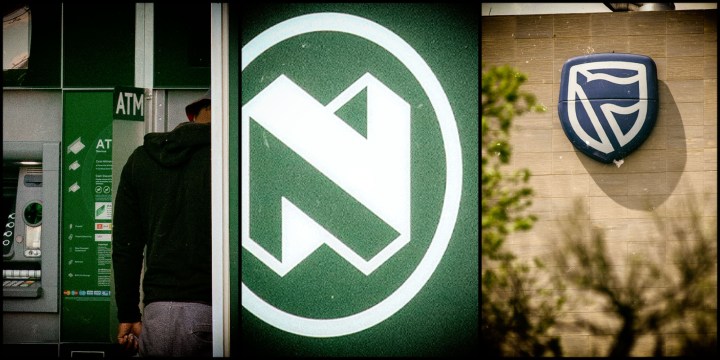PHANTOM SHARES
You can still bank on banks, but for how much longer?

The worry has been that, at some point, the music will stop for the banks and the environment of consumer pressure and higher rates will end up tipping things over the edge, disappointing investors along the way and breaking the credit loss ratio as borrowers default on loans.
Although one bank’s performance isn’t always an indication of how other banks are doing, we can take heart from Standard Bank affirming guidance for a strong full-year result. Based on the 10 months to October, the credit loss ratio looks to be within the through-the-cycle target range of 70 to 100 basis points. Return on equity is on track to be between 17% and 20%.
Notably, we are starting to lap periods of higher interest rates, so the rate of expansion of net interest margin is slowing down. As we hit the top of the interest rate cycle, earnings are driven by demand for credit, not demand plus further margin expansion. And as rates drop, net interest margins contract rather than expand, putting significant pressure on revenue growth.
Revenue is up by more than 20% in this 10-month period, but that can’t carry on for much longer.
It’s always worth a reminder that the business in the rest of Africa is incredibly important at Standard Bank, contributing 44% of group headline earnings.
Bidvest runs out of bids
When a stock has done well in a tough environment, any sign of trouble is dealt with swiftly and harshly by the market. Investors tend to take profit when bad news arrives, just in case the good times are truly over. That concern becomes a self-fulfilling prophecy in no time at all, as evidenced by the precipitous fall in the Bidvest price.
Down more than 14% in the past five days, the year-to-date performance is now just 9%. That’s still not bad, but it’s a long way from where it was. The market has been enjoying the company’s ability to protect margins in a difficult environment.
At the AGM, Bidvest warned the market that the slowdown is greater than anticipated and that it cannot maintain gross margins at the moment. That’s exactly what the market didn’t want to hear.
There are some important read-throughs to other listed companies. For example, the company talks about travel and hospitality offering pockets of growth, which ties up with what we’ve seen from companies such as Southern Sun and City Lodge.
Interestingly, despite Bidvest noting that the automotive business was “significantly weaker” based on customer price sensitivity, an update from Transaction Capital this week suggested that WeBuyCars is trading ahead of expectations. The key here may well be “expectations”, as Transaction Capital had previously warned of a substantial slowdown in WeBuyCars this year.
Bricks, mortar and more dividends
The property sector is still tricky, particularly for funds with broader exposure. There are pockets of growth in South Africa, but not many.
Of course, there are locally listed property funds that have exposure to properties in faraway lands. One such fund is Vukile, which has a unique mix of South African and Spanish properties. It probably won’t shock you to learn that the Spanish portfolio is performing well ahead of the local portfolio, with net operating income growth of 13% in the six months to September versus just 5.1% in South Africa.
The interim dividend is 10% higher and full-year guidance has been upgraded to reflect growth in the dividend per share of 8% to 10%.
Another interesting example is Fairvest, which has a dual-class share structure. The A shares are trading on a yield just above 9% and the dividend grows by the lesser of 5% and local inflation. The B shares make no such promises, so they give variable returns based on underlying performance.
Trading on a yield of nearly 12.5%, the guidance for the B shares is modest growth in distributable income per share for the year ending September 2024. Still, that’s a pretty meaty yield.
Before you throw your money at this sector, be aware of the risk of a disappointing festive season. Hyprop released an update showing monthly trading density statistics in its portfolio of high-end retail properties. October was practically flat vs the previous year, which isn’t a good sign. DM
















 Become an Insider
Become an Insider
South Africa is on a one way ticket to HELL as long as the vANCer and the Red poopalls are allowed to exist.
I can only see a mass uprising of good people with Shamboks sorting out this mess!